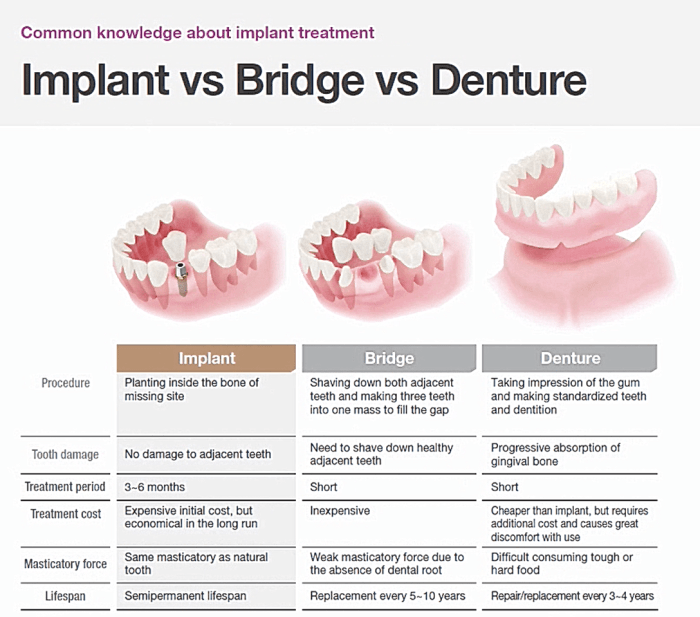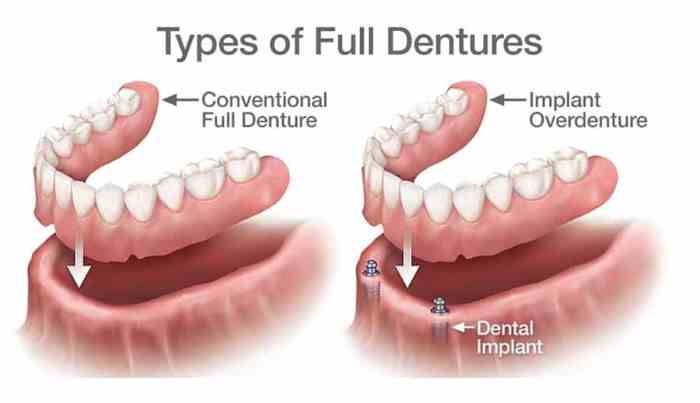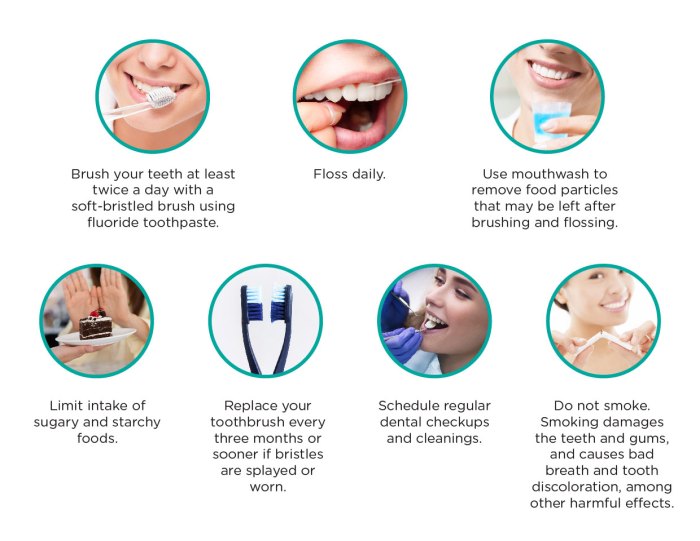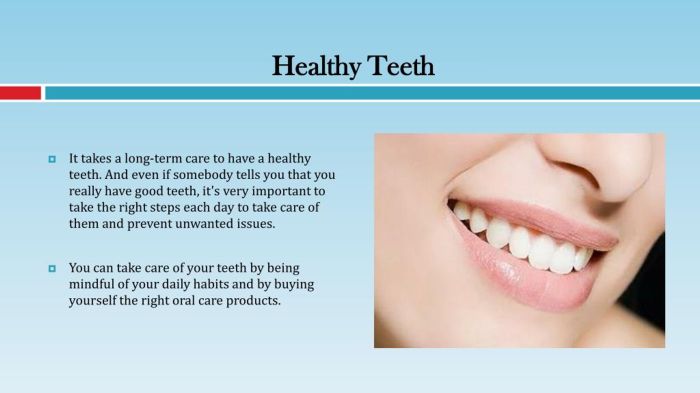
Embark on a journey of discovery with Dental Implants vs Dentures, where we unravel the differences between these two dental solutions in a fun and engaging manner.
Get ready to dive into the world of dental care as we explore the pros and cons of each option to help you make an informed decision for your oral health.
Introduction
Dental implants and dentures are two common solutions for replacing missing teeth. Dental implants are metal posts that are surgically placed into the jawbone, acting as artificial tooth roots to support replacement teeth. On the other hand, dentures are removable prosthetic devices that replace missing teeth and surrounding tissues.The purpose of dental implants is to provide a long-term solution for replacing missing teeth that look, feel, and function like natural teeth.
They help prevent bone loss in the jaw and offer stability for chewing and speaking. Dentures, on the other hand, are more affordable and can be a suitable option for those who have lost multiple teeth or need a full set of teeth replaced.The main differences between dental implants and dentures lie in their permanence, comfort, and maintenance. Dental implants are a permanent solution that requires surgery but offers a more natural look and feel.
Dentures, while removable and less invasive, may need adjustments over time and can sometimes be less stable when chewing or speaking.
Dental Implants
When considering dental implants, it’s important to understand the process involved in getting them. Dental implants are artificial tooth roots that are surgically placed into the jawbone to support replacement teeth or bridges.
Implant Procedure
The process of getting dental implants typically involves multiple visits to the dentist. Firstly, the dentist will assess the patient’s oral health and create a personalized treatment plan. During the surgical procedure, the implant is placed into the jawbone and allowed to fuse with the bone over a few months. Once the implant has bonded with the bone, an abutment is attached to the implant to connect the replacement tooth or bridge.
Implant Materials
Dental implants are usually made of titanium, a biocompatible material that is well-tolerated by the body and allows for osseointegration, the fusion of the implant with the bone. This results in a strong and stable foundation for the replacement teeth.
Benefits of Implants
- Improved aesthetics and natural look
- Enhanced chewing and speaking abilities
- Long-lasting and durable solution
- Preservation of jawbone and facial structure
- Convenience and comfort compared to dentures
Dentures

When it comes to replacing missing teeth, dentures are a common option that many people choose. Dentures are removable appliances that can help restore your smile and improve your ability to chew and speak. Let’s explore the different types of dentures available, the maintenance required, and how they compare in cost to dental implants.
Types of Dentures
- Partial Dentures: Partial dentures are used when you are missing some, but not all, of your teeth. They attach to your existing teeth with metal or acrylic clasps.
- Full Dentures: Full dentures are used when all of your natural teeth are missing. They sit on your gums and are held in place with suction or adhesive.
- Implant-Supported Dentures: These dentures are attached to dental implants that have been surgically placed in your jaw. They provide added stability and prevent bone loss.
Maintenance of Dentures
Maintaining your dentures is essential to ensure they remain in good condition and last a long time. Here are some key tips for denture care:
- Clean your dentures daily with a soft-bristled brush and denture cleaner.
- Remove your dentures at night to give your mouth a rest.
- Handle your dentures with care to avoid damage.
- Regular dental check-ups are important to ensure a proper fit and avoid oral health issues.
Cost Comparison
When it comes to cost, dentures are generally more affordable than dental implants. The price of dentures can vary depending on the type you choose and any additional procedures needed, such as extractions or adjustments. On the other hand, dental implants are a more permanent and natural-looking option but come at a higher cost due to the surgical procedure and materials involved.
Health Implications
When it comes to oral health, both dental implants and dentures play a significant role in restoring functionality and aesthetics in individuals with missing teeth. Let’s explore how these dental solutions impact overall well-being and discuss common health issues associated with each.
Impact on Oral Health
- Dental Implants: Dental implants are known to promote better oral health by preventing bone loss and maintaining the integrity of the jawbone. They function like natural teeth, stimulating the bone and preventing deterioration. This helps in preserving facial structure and preventing sagging.
- Dentures: While dentures can restore the appearance of a smile, they do not prevent bone loss in the same way as dental implants. Over time, wearing dentures can lead to bone resorption, causing changes in facial structure and potentially affecting oral function.
Overall Well-being
- Dental Implants: The stability and durability of dental implants can significantly impact overall well-being by improving chewing ability, speech, and confidence. Patients often report feeling more comfortable and natural with dental implants compared to dentures.
- Dentures: Dentures can provide functional benefits, but they may require adjustments and replacements over time. Ill-fitting dentures can cause discomfort, affect speech, and impact dietary choices, potentially leading to nutritional deficiencies.
Common Health Issues
- Dental Implants: While dental implants are considered a safe and effective solution for tooth replacement, complications such as infection, implant failure, and peri-implantitis can occur in some cases. Proper oral hygiene and regular dental check-ups are essential for preventing these issues.
- Dentures: Common health issues associated with dentures include gum irritation, fungal infections (such as oral thrush), and discomfort due to poor fit. Regular maintenance and proper cleaning of dentures are crucial for oral health and overall well-being.
Alternative Treatment Options
When considering options for replacing missing teeth, there are alternatives to dental implants and dentures. These alternatives include bridges and crowns, each with their own set of pros and cons. Let’s explore these options further and compare their longevity and durability to dental implants.
Bridges
A dental bridge is a fixed restoration that replaces one or more missing teeth by anchoring to adjacent natural teeth or dental implants. Bridges can help restore your smile and improve chewing function.
- Pros:
- Non-removable, providing a stable solution
- Can prevent shifting of surrounding teeth
- Restores aesthetics and function
- Cons:
- Requires the alteration of adjacent natural teeth
- Potential for increased risk of decay or gum disease
- May need replacement over time
Crowns
Dental crowns can be used to restore a single damaged or missing tooth. They are custom-made to fit over the prepared tooth or dental implant, providing strength and protection.
- Pros:
- Can improve the appearance of a damaged tooth
- Provides support and protection to a weakened tooth
- Durable and long-lasting
- Cons:
- Requires the reduction of the natural tooth structure
- Potential for fracture or wear over time
- Not suitable for extensive tooth loss
When comparing the longevity and durability of dental implants to alternative treatments like bridges and crowns, it’s essential to consider your individual needs and preferences. Consulting with your dentist can help you determine the most suitable option for replacing missing teeth.
Health Dentistry
In the field of health dentistry, dentists play a crucial role in recommending the most suitable treatment option for patients with missing teeth. Whether it’s dental implants or dentures, oral health professionals carefully assess each patient’s unique situation to determine the best course of action.
Role of Dentists
- Dentists evaluate the overall oral health of the patient, including the condition of the gums and remaining teeth.
- They consider the patient’s bone density and structure to determine if they are good candidates for dental implants.
- Based on their expertise and experience, dentists provide recommendations on whether dental implants or dentures would be more beneficial for the patient’s long-term oral health.
Determining the Best Treatment Option
- Oral health professionals take into account the patient’s lifestyle, budget, and personal preferences when deciding between dental implants and dentures.
- They consider factors such as the patient’s ability to maintain oral hygiene, the stability of the jawbone, and the desired aesthetics of the final result.
- Through comprehensive evaluations and discussions with the patient, dentists help determine the most appropriate treatment option that aligns with the patient’s overall health goals.
Advancements in Dental Technology
- Advancements in dental technology have significantly improved the success rates of both dental implants and dentures.
- New materials and techniques allow for more precise implant placement and customization of dentures for a more comfortable fit.
- 3D imaging and computer-aided design have revolutionized the planning and execution of dental procedures, leading to better outcomes and faster recovery times for patients.
Health Fitness
Maintaining good oral health is essential for overall fitness and well-being. Dental issues can impact our ability to eat, speak, and even smile confidently. Let’s explore how dental implants or dentures can affect one’s health and provide tips for maintaining oral hygiene with these dental solutions.
Impact on Eating Habits
- Dental implants function similarly to natural teeth, allowing for a more natural chewing process. This enables individuals to continue enjoying a wide variety of foods without restrictions.
- Dentures, on the other hand, may affect one’s ability to eat certain foods, especially hard or sticky ones. It’s essential to be cautious and cut food into smaller pieces to avoid damaging the dentures.
Tips for Oral Health with Dental Implants or Dentures
- Regularly brush and floss your teeth, including dental implants or dentures, to prevent plaque buildup and maintain oral hygiene.
- Use a non-abrasive toothpaste and a soft-bristled toothbrush to clean your dental implants or dentures gently.
- Ensure to visit your dentist for routine check-ups and professional cleanings to monitor the condition of your dental implants or dentures and address any issues promptly.
Health Medicine
When considering dental implants or dentures, it is essential to take into account the medical considerations that may affect your decision. Medical conditions and medications can play a significant role in determining the best dental solution for each individual.
Medical Considerations
- Individuals with uncontrolled diabetes or autoimmune diseases may face complications with dental implants due to impaired healing and increased risk of infection.
- Patients with a history of radiation therapy to the head and neck may have limited bone quality, making them better candidates for dentures.
- Smokers have a higher risk of implant failure due to reduced blood flow and compromised healing processes.
Interactions with Medications
- Some medications, such as bisphosphonates used to treat osteoporosis, can interfere with the integration of dental implants into the jawbone.
- Anticoagulants may increase the risk of bleeding during dental implant surgery, requiring careful management by healthcare providers.
Consulting Healthcare Professionals
- It is crucial to consult with your dentist and physician before choosing a dental solution to ensure that your medical conditions and medications are taken into consideration.
- Healthcare professionals can provide personalized recommendations based on your individual health status to minimize risks and optimize treatment outcomes.
Health Pharmacy
When it comes to dental implants or dentures, there are several medications and products commonly used in conjunction with these dental prosthetics. Pharmacies play a crucial role in providing support and guidance to individuals who have undergone dental implant or denture procedures. Additionally, managing oral care supplies is essential for maintaining good oral health with dental implants or dentures.
Medications and Products
- Antibacterial mouthwash: Individuals with dental implants or dentures may be advised to use antibacterial mouthwash to prevent infections and maintain oral hygiene.
- Denture adhesive: For denture wearers, denture adhesives can help keep dentures securely in place and improve comfort while eating and speaking.
- Pain relief medication: After dental implant surgery or denture fitting, pain relief medication may be prescribed to manage any discomfort or pain.
Role of Pharmacies
Pharmacies are essential in providing necessary medications and products for individuals with dental prosthetics. They offer guidance on proper usage of oral care supplies and can recommend specific products tailored to the individual’s needs.
Managing Oral Care Supplies
- Keep oral care supplies organized: Store dental implant or denture cleaning products in a designated area to easily access them when needed.
- Regularly replenish supplies: Ensure you have an adequate supply of oral care products such as denture adhesive, cleaning tablets, and antibacterial mouthwash.
- Follow dentist’s recommendations: Adhere to your dentist’s instructions on how to care for your dental implants or dentures and which products to use for optimal oral health.
Weight Loss

Missing teeth can have a significant impact on an individual’s ability to maintain a healthy weight. Chewing becomes more challenging, leading to a preference for softer, often less nutritious foods. This can result in a diet high in processed foods, sugars, and fats, which may contribute to weight gain.
Role of Proper Dental Care
Proper dental care, including the use of dental implants or dentures, plays a crucial role in supporting weight loss efforts. By restoring the ability to chew and enjoy a variety of foods, individuals can make healthier dietary choices. This can lead to improved nutrition and better weight management.
Influence of Dental Implants or Dentures
- Dental implants provide a permanent and stable solution for missing teeth, allowing individuals to eat a wide range of foods without restrictions. This can support a more balanced and nutritious diet conducive to weight loss.
- Dentures, while not as secure as implants, still offer significant improvement in chewing ability compared to missing teeth. They enable individuals to enjoy a more varied diet, which can positively impact weight management efforts.
- Both dental implants and dentures can help individuals regain confidence in their smile and overall appearance, leading to improved self-esteem and motivation to make healthier lifestyle choices.
Women & Health
When it comes to oral health, women face unique challenges and considerations at different stages of life. From hormonal changes to pregnancy, menopause, and aging, the impact of dental prosthetics like implants and dentures can vary for women. It’s essential for women to prioritize their oral health and make informed decisions about dental treatments to maintain overall health and well-being.
Impact of Dental Implants and Dentures on Women’s Oral Health
- During Pregnancy: Hormonal changes during pregnancy can increase the risk of gum disease, which may affect the success of dental implants. Dentures may need adjustments due to changes in the oral cavity.
- Menopause: Decreased estrogen levels can lead to bone loss, potentially affecting the stability of dental implants. Dentures may also become loose due to changes in jawbone density.
- Aging: Women are more likely to experience osteoporosis, which can impact the bone structure supporting dental implants. Dentures may be a more suitable option for older women with compromised bone health.
Gender-Specific Considerations in Dental Prosthetics
- Oral Health Awareness: Women tend to be more proactive in seeking dental care and maintaining oral hygiene compared to men, which can positively influence the success of dental implants or dentures.
- Bone Density: Women have lower bone density than men, making them more susceptible to bone loss around dental implants. Regular bone density assessments may be necessary for women considering dental prosthetics.
- Social Factors: Women often prioritize aesthetics and comfort in dental treatments, which can impact their choice between dental implants and dentures. It’s essential to consider individual preferences and lifestyle factors.
Prioritizing Oral Health for Women
- Regular Dental Check-ups: Routine dental visits can help detect oral health issues early and prevent complications that may affect the success of dental implants or dentures.
- Healthy Lifestyle Choices: Maintaining a balanced diet, avoiding tobacco use, and practicing good oral hygiene are crucial for women to support the longevity of dental prosthetics.
- Educational Resources: Women can benefit from seeking information from healthcare providers and reputable sources to make informed decisions about their oral health and dental treatment options.
Closing Summary
In conclusion, whether you opt for dental implants or dentures, remember that the key is to prioritize your oral health and choose the solution that best fits your needs.
FAQ Summary
Which option is more cost-effective: dental implants or dentures?
Dentures are generally more affordable upfront, but dental implants can be more cost-effective in the long run due to their durability and longevity.
Can anyone get dental implants or are there restrictions?
Not everyone is a suitable candidate for dental implants. Factors like bone density and overall health play a role in determining eligibility.
Do dentures feel uncomfortable to wear?
Initially, dentures may feel uncomfortable as your mouth adjusts to them, but with time and proper adjustments, they should feel more natural.
Are there any age restrictions for getting dental implants?
There are no strict age restrictions for dental implants, but overall health and bone density are more important factors to consider.
How often should dentures be replaced?
Dentures typically last around 5-7 years before needing replacement due to wear and tear and changes in the mouth’s structure.

